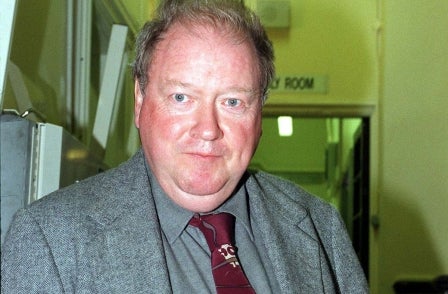
Police are to look into whether any criminal offence has been committed over the Lord McAlpine affair, it emerged today.
The peer, who was wrongly named as a paedophile online following a botched Newsnight investigation into child abuse at a North Wales care home, has already reached a £185,000 settlement with the BBC and his lawyers are in talks with ITV over a bigger payment.
The broadcaster sparked fury when presenter Phillip Schofield brandished a list of names of alleged abusers which he had found on the internet and handed it to the Prime Minister during a live interview.
Former Tory politician Lord McAlpine has also vowed to pursue Twitter users who wrongly named him, asking those who linked him to child abuse allegations to apologise formally and pay a "sensible and modest amount" which he plans to donate to BBC Children in Need.
It has since emerged that Scotland Yard is to start looking into whether any criminal offence has taken place in connection with the saga. It is thought crimes could reportedly include the offence of malicious communication.
A spokesman for Scotland Yard said: "We have not received an allegation of crime at this time, however we can confirm we will be meeting with interested parties to start the process of scoping whether any offence has taken place. It is far too early to say whether any criminal investigation will follow."
Lord McAlpine's solicitor Andrew Reid previously said action was being considered against a "very long list" of Twitter users.
Comedian Alan Davies and the Commons Speaker's wife Sally Bercow are among the prominent figures who have already apologised for linking the peer to child abuse allegations on Twitter.
Bercow posted on November 4: "Why is Lord McAlpine trending? *innocent face*." She appears to have deactivated her account and quit the site.
This week it was revealed that Lord McAlpine is donating compensation he receives from defamatory posts on Twitter to BBC Children in Need.
A statement from his lawyers said: "The fixed donation amount is yet to be assessed. However, this will be to Lord McAlpine's charity of choice, BBC Children In Need, and will be in addition to an administration fee.
"Given the large amount of information that continues to be disseminated, the band for which the charity payment will be settled shall be when Lord McAlpine has a full understanding of this material.
"The donation is intended for tweeters with fewer than 500 followers, but those with larger numbers of followers are still encouraged to identify themselves and offer their formal apologies at this stage."
Twitter users, and those who might have posted information on social networking sites, could face prosecution under the Communications Act 2003 or the Malicious Communications Act 1988.
Section 127 (2) of the Communications Act 2003 makes it an offence for someone to use a "public electronic communications network" to send a message he or she knows to be false, for the purpose of causing "annoyance, inconvenience or needless anxiety to another".
The maximum penalty, on summary conviction, is up to six months in prison, or a fine up to £5,000, or both.
Section 1 of the Malicious Communications Act makes it an offence for someone to send to someone else a letter, communication or article or any description which conveys information which he or she knows or believes to be false, if his or her intention is to cause the recipient or anyone else distress or anxiety.
The maximum penalty on summary conviction is six months in prison or a fine of up to £5,000.
Email pged@pressgazette.co.uk to point out mistakes, provide story tips or send in a letter for publication on our "Letters Page" blog

